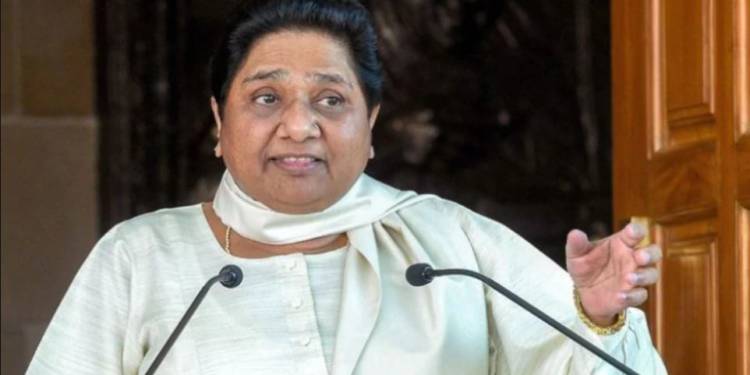Maywati-led BSP has decided to contest on all seats in Delhi assembly polls, which are scheduled on February 8. The arch-rival of BSP in UP, SP, has decided to stay away from the Delhi assembly elections, as it does not want to split the anti-BJP votes. On the other hand, BSP has no such obligations and the party has decided to contest all the seats.
The BSP candidates are likely to split the AAP votes, as majority of its vote bank- SC community and Muslims- voted for Kejriwal in 2015. The Delhi legislative assembly has 12 seats reserved for the SC community, and Maywati won 2 of these in 2008 assembly election. However, since the rise of AAP, the party hasn’t been able to open its account in Delhi. In the 2013 and 2015 assembly elections, the party did not win a single seat, and its vote share too declined.
The participation of BSP will make Delhi assembly election a quadrangular contest, at least on the reserved seats with large SC, Muslim population.
“A high-level meeting chaired by BSP chief was held recently in which directions were given to the party leaders from western Uttar Pradesh to start preparations for the Delhi Assembly polls. It was mainly the AAP which had influenced the BSP voters. However, another challenge before us will be to deal with the Bhim Army influence mostly in the western part of UP which shares its boundary with Delhi,” said a senior BSP leader.
SC population constitutes a significant number of Delhi voters, and most of them are migrants from the state of Uttar Pradesh. Mayawati’s party used to be a major player in Delhi before the rise of AAP. In fact, it was the third largest party in the state in 2008 assembly elections, and bagged 14.5 percent of total votes; compared to 40 percent by Congress and 14 percent by BJP.
However, in 2013 assembly election, the party could not win a single seat, and its vote share was reduced to single digit. Similarly, in the 2015 general election, the party drew blank, and the vote share was further reduced.
If any party has suffered the most in Delhi due to the rise of AAP, it is, of course, BSP, as it has lost the third largest party tag, in terms of vote share as well as seats.
Mayawati’s decision to contest the election could significantly alter the outcome against AAP, at least on the seats with large BSP vote bank population. BJP’s voter base does not overlap with that of BSP, as its major votes in the state come from affluent Bania and Punjabi community, which had never voted for BSP.
Therefore, BJP is set to benefit in the quadrangular contest, as the opposition votes will be divided between AAP, Congress, and BSP. AAP, which swept the BSP vote bank in 2013 and 2015, will be on the losing end with a quadrangular contest.
Over the last few years, the SC community of Delhi have become more assertive about their identity, which was witnessed in the protest against the demolition of Ravidas Mandir in the city. Thousands rallied with blue flags and placards to support the reconstruction of Ravidas Mandir, and their slogan was somewhat familiar- Mandir Wahi Banayenge, although they chanted it for Ravidas Mandir, not the Ram Mandir.
Therefore, the SC community might vote a party which is unabashedly pro-SC, instead of the one which is neutral on these issues. In the last few years, leftist magazines have also published articles painting Kejriwal as anti-SC, and if these facts get publicity, AAP is set to suffer in the elections on February 8.



























